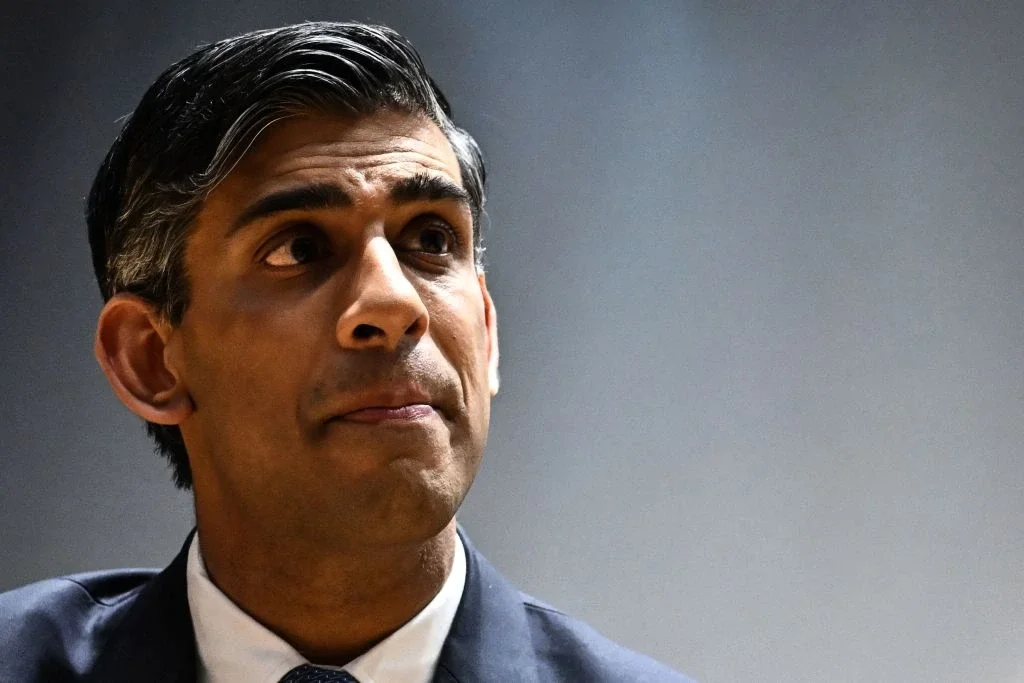
Is Britain hurtling towards a Labour government, or is our prime minister Rishi Sunak about to enjoy a major comeback: a Rishi-naissance? If you look at both the opinion polls and the results of the recent local elections, then you’d conclude next year’s general election will produce the first Labour government since the election of 2005.
Sir Keir Starmer and the Labour Party have been averaging a 15-point lead in the polls, which is more than the 12.5-point lead they will need for a majority. At the local elections Labour enjoyed widespread gains in both the northern Red Wall and key swing seats, such as Swindon and Plymouth, also suggesting they are heading back into power, albeit without an overall majority.
And if you were to apply the results of the 2023 local elections to the national level, Britain would almost certainly be left with a chaotic hung parliament, in which Labour would probably be dependent on the Liberal Democrats or the Scottish National Party for support.
Other things also appear to be moving Labour’s way. If you ask voters who they trust to manage their top issues, Starmer and his party now lead on all of them. And then there’s the government’s ratings, which are simply abysmal.
[See also: ‘The Tier 1 Investor visa needs to be replaced to save UK economy’]
Can Sunak win at the next election?
It’s often said that when it comes to winning elections the only thing that matters is whether or not people think you are competent; whether they believe you are up to the job and can manage the demands of high office. If you look at how voters feel about the Conservative government, this picture is far from positive.
According to pollsters Redfield and Wilton, the Conservative government has a ‘net competency’ score of minus 25, while at the time of writing Sunak’s own rating is minus 11. Incumbent parties with these kinds of numbers do not win re-election.
Can Sunak bring about a recovery? How might he chart a path to victory? I’m not going to lie to you: it’s going to be extremely difficult. And I’m working on the assumption that it will not happen. But as a thought experiment, let’s play it out.
People around the prime minister will tell you, officially, that this path consists of delivering five things: bringing down inflation; creating better-paid jobs; reducing Britain’s escalating pile of national debt; cutting waiting lists in the NHS; and stopping the growing number of small boats crossing the Channel.
Privately, however, it’s a different story. One of the very big problems facing Sunak, these insiders recognise, is just how much of this lies completely outside his control. While the government’s Rwanda plan for tackling illegal migration remains tied up in the courts, it’s also now overshadowed by the rapidly rising levels of legal immigration into Britain.

[See also: ‘Why Labour’s VAT plan for private schools doesn’t add up’]
According to the latest figures, 1.2 million people moved into Britain last year, 80 per cent of whom came from outside Europe. This blows a hole in the Conservative party’s promises to bring the numbers down.
Sunak has to cut through the noise. He also has to hope that some things in the wider environment begin to change quickly. Inflation and interest rates need to fall sharply, allowing him to say with a straight face that we’ve turned a corner. Only then can he warn voters ‘not to let Labour ruin it’. He will also need to get victories in the courts over his Rwanda plan and then start showing voters in the Red Wall people are actually leaving Britain.
The number of Albanians entering Britain is already falling, but there’ll need to be much more of this visible, substantive change. If that happens – and it’s a big ‘if’ – he will be able to say he’s finally taken back control of the borders. He’ll also need to show, clearly, that the crisis in the NHS is being resolved, the Covid backlog is being whittled down and the government is starting to reform a failing institution. It would help if he could show that the number of home-grown doctors was on the rise.
On top of all this, though, the prime minister will need to set out a compelling vision of where he wants to take Britain. Do you know, beyond a rather bland managerialism, what he believes? I certainly don’t. Most voters won’t know either.
Many of the voters who sit in my focus groups are instinctively sceptical of Labour – while they are reluctantly supporting the party, they still don’t really trust Labour on the economy and immigration. But unless Sunak can find a way of speaking loudly and clearly to them about why he is very different from Boris Johnson, Liz Truss and Sir Keir Starmer, all that is irrelevant.
So, readers, I’ll tell it straight: there is a path back for Rishi Sunak, but I’m very sceptical that he’ll be able to find it. Like most other incumbent parties around the world, the Tories look set to be blown out of the water by their failure to deal with inflation or the cost-of-living crisis. That’s set to usher in a very different government indeed.






